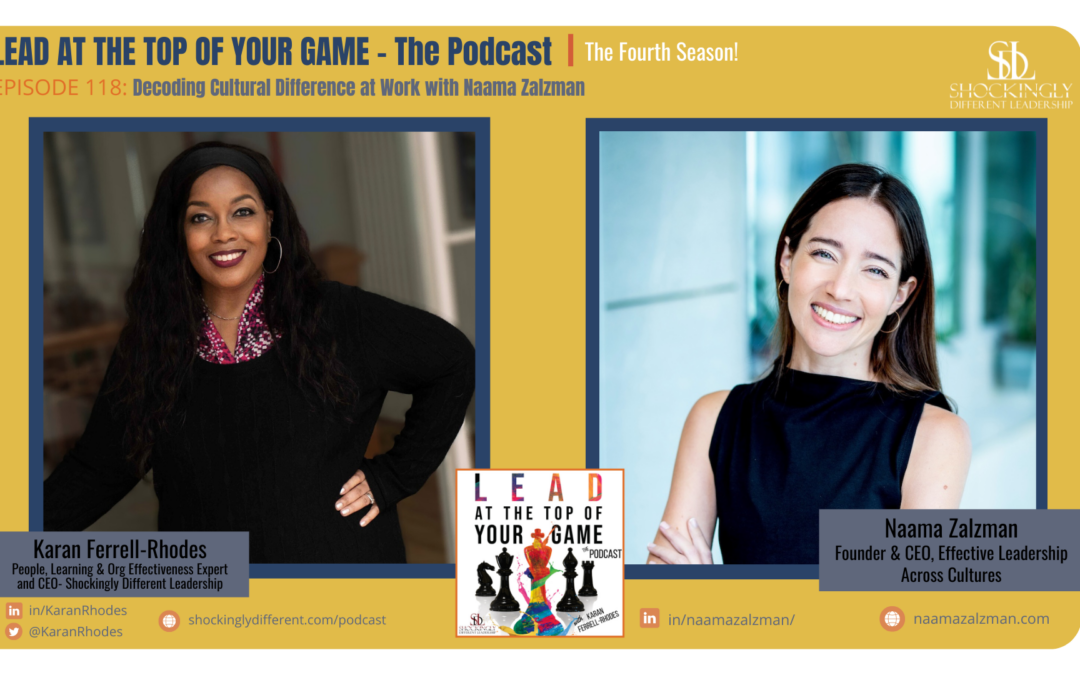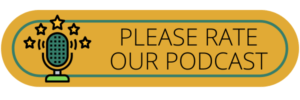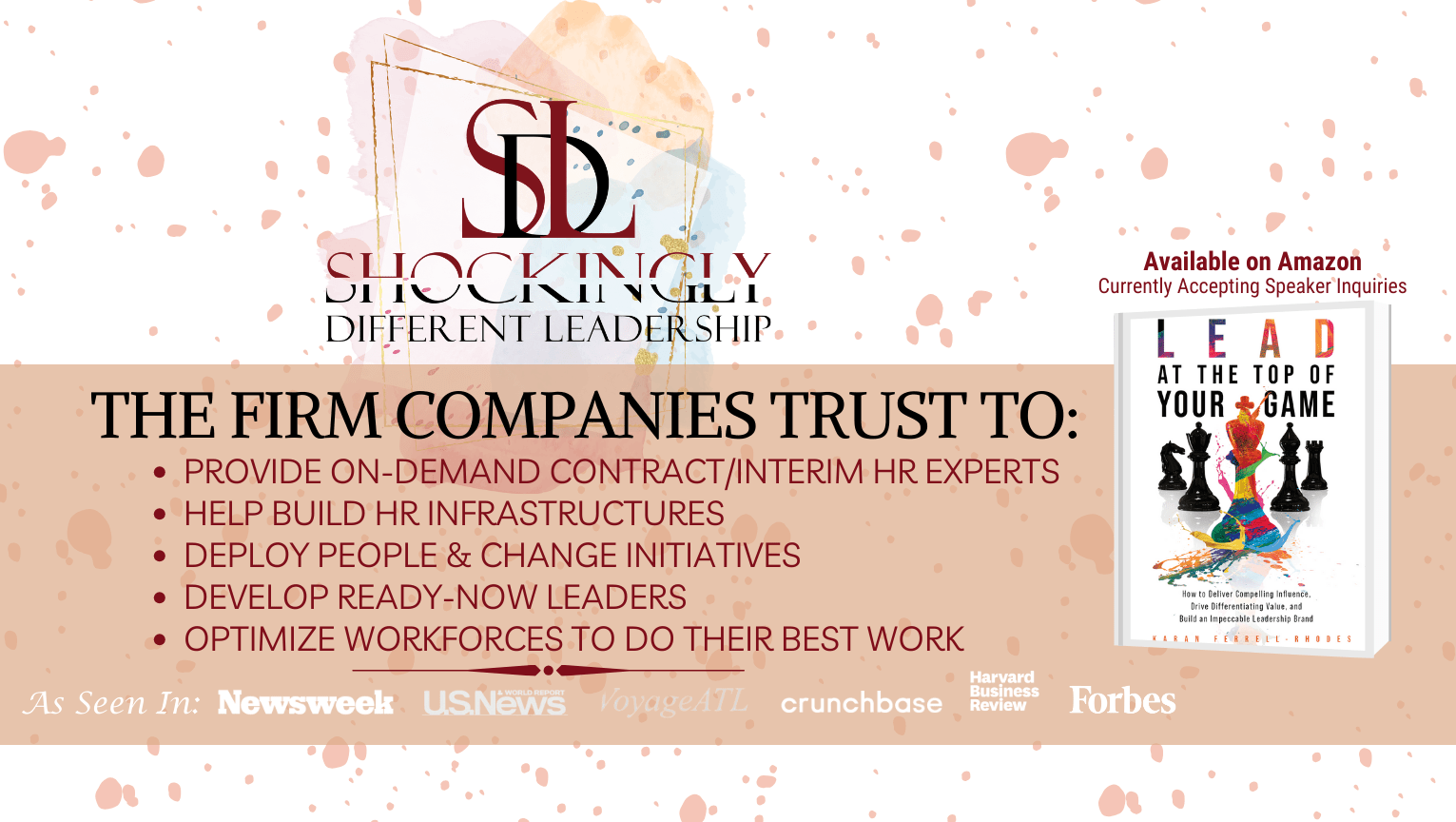IN THIS EPISODE, KARAN FERRELL-RHODES INTERVIEWS NAAMA ZALZMAN.
Naama discusses the challenges and strategies for leading in multicultural environments. She highlights the need for leaders to adapt their communication styles and be aware of cultural nuances to avoid misunderstandings.
Naama shares insights on navigating cultural gaps, emphasizing curiosity and non-judgmental attitudes. She also explains her consulting approach, offering tailored solutions to enhance cultural sensitivity in organizations.
Naama explores the impact of the political climate on leadership and the importance of stakeholder savvy. She underscores how cultural awareness boosts business performance and fosters effective global leadership.
Naama Zalzman is the founder and CEO of Effective Leadership Across Cultures.
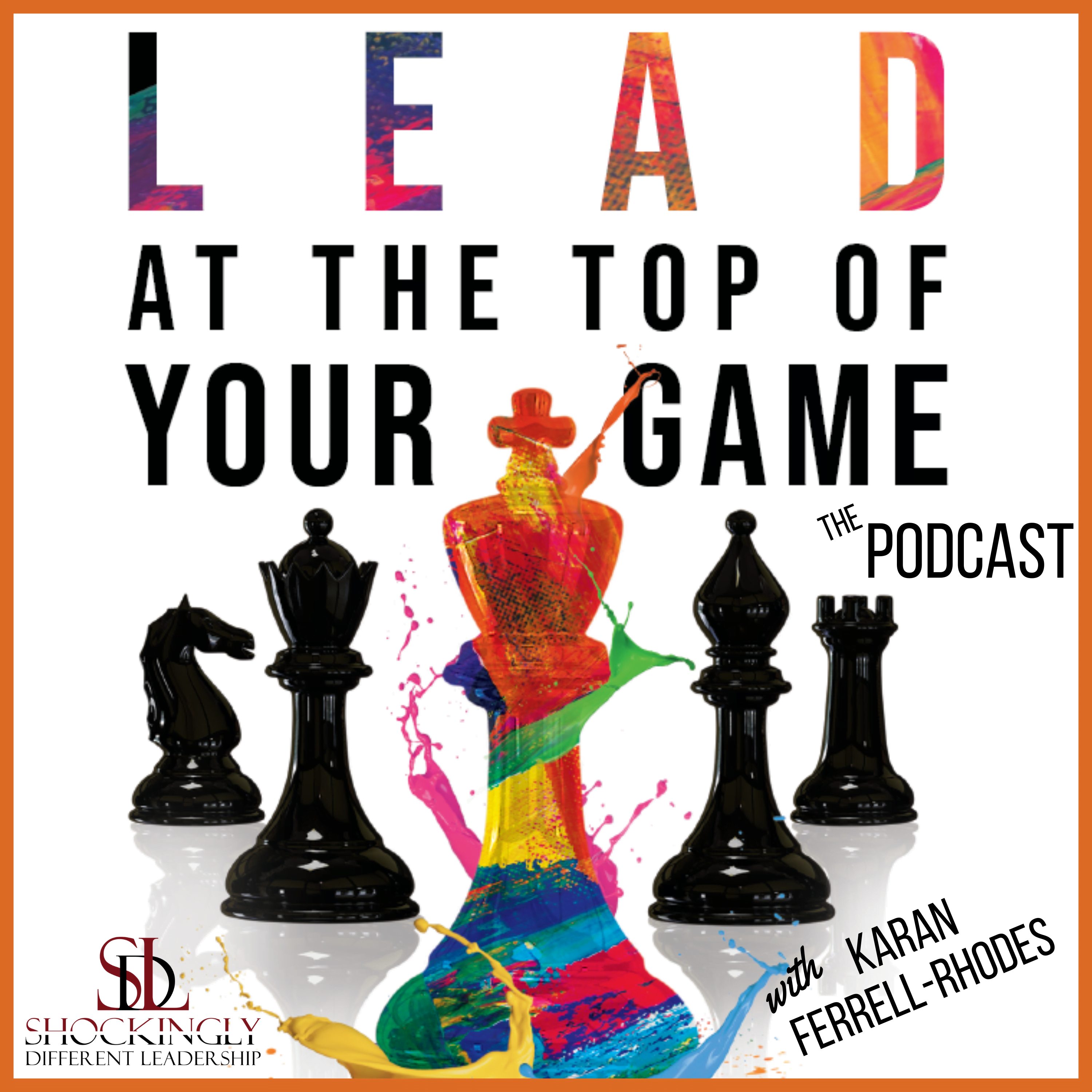
Posted by
SDL Media Team
Rather view our video podcast?

WHAT TO LISTEN FOR:
- What challenges do leaders face in multicultural leadership?
- How can cultural misunderstandings impact communication?
- Why is it essential for leaders to be adaptive to different cultures?
- What are the key differences between long-form and short-form communication styles?
- How can leaders navigate cultural differences effectively?
- What strategies can help teams become more culturally sensitive?
- Why is confidentiality important in cultural consulting services?
- How does cultural sensitivity impact business performance?
- What role does the political climate play in leadership and coaching?
- How does stakeholder savvy contribute to effective leadership?
“Try to identify cultural gaps in real time, and then adjust.”
FEATURED TIMESTAMPS:
[02:26] Naama’s Personal Background
[03:49] Naama’s Professional Journey
[06:57] Challenges and Trends in Multicultural Leadership
[10:40] Signature Segment: Naama’s entry into the LATTOYG Playbook: Effective Communication Across Cultures
[16:40] Strategies for Navigating Cultural Differences
[21:46] Naama’s Consulting Services
[24:57] Impact of Current Political Climate on Leadership
[28:26] Signature Segment: Naama’s LATTOYG Tactic of Choice: Leading with Stakeholder Savvy
[30:17] Contact Information

ABOUT NAAMA ZALZMAN
Living and operating out of New York City, born and raised in Israel, Naama Zalzman is an Organizational and Cultural Consultant with expertise in leadership training and organizational development, specializing in Business Psychology and cross-cultural company growth.
Naama held several managerial positions in global companies such as Vertex Ventures and PwC and worked with over 100 tech companies from the seed stage to IPO, entrepreneurs, and multicultural teams from Israel, Europe, Asia, and the United States. She is a co-host at ‘Od Podcast,’ a popular tech podcast in Israel (2.5M downloads), and was featured in Israel’s Forbes 30 under 30 list (2019).
Among the companies and VCs she has worked with are PwC, Wix, Meta, Samsung NEXT, and others.
LINKS FOR NAAMA:
- Website: naamazalzman.com/
- LinkedIn: linkedin.com/in/naamazalzman/
- Instagram: instagram.com/naama.zalzman/
ADDITIONAL RESOURCES FOR YOU:


Episode Sponsor
SDL is the go-to firm companies trust when needing to:
- supplement their in-house HR teams with contract or interim HR experts
- implement leadership development programs that demonstrate an immediate ROI and impact on the business

Episode 118 | Decoding Cultural Difference at Work with Naama Zalzman
Naama Zalzman 00:00
Many people used to think that the main challenge is to know if I you know, should I shake your hand or you know or not? But in most cases, we understand that it’s way more delicate than that.
Voiceover 00:03
Welcome to the “Lead at the Top of Your Game” podcast, where we equip you to more effectively lead your seat at any employer, business, or industry in which you choose to play. Each week, we help you sharpen your leadership acumen by cracking open the playbooks of dynamic leaders who are doing big things in their professional endeavors. And now, your host, leadership tactics, and organizational development expert, Karan Ferrell-Rhodes.
Karan Rhodes 00:36
Hello, my superstars. This is Karan, and welcome to another episode of the lead at the top of your game podcast. I am so thrilled to have on today’s show, dear dear colleague who I just fell in love with the first time we had a chance to chat, and after a fantastic conversation, I just knew I had to bring her onto the podcast. We’re so pleased to have Naama Zalzman, and I wanted to make sure I didn’t murder her name. Hopefully I didn’t. But she is the founder and CEO of effective leadership across cultures. She’s an organizational and cultural consultant who has worked with over 100 tech companies from seed stage to IPO, which is amazing, I’m sure, watching those journeys. But on top of it, one of her superpowers, she’s also focused on multicultural leadership, and she’s worked with multicultural teams from a ton of countries, including, like Israel, countries in Europe, Asia and in the of course, our old United States. So I am so thrilled to have her on the show, and I love having more global perspectives on the show, and she is definitely fitting that bill. So welcome to the podcast. Naama.
Naama Zalzman 01:54
Thank you so much, Karan for having me
Karan Rhodes 01:56
Awesome. Well, I can’t wait to delve into our conversation, but we always typically love to know a little bit about our guest on a personal level. So for just as much as you feel comfortable, could you give us a sneak peek into your life outside of work.
Naama Zalzman 02:12
Of course, with pleasure. So I live in New York City, born and raised in Israel, as you know, married to Oron that you know as well, and a mum to Adam. A fun fact about me and even about us as a family is that until now, we’ve spent about six to seven months a year in New York City, and the rest of the time we work and travel. Again, we across the globe, you can say. So luckily, my family also loves to explore, and, you know, new cultures as much as item. So
Karan Rhodes 02:41
Wow, that’s amazing. So you’re not traveling as much anymore.
Naama Zalzman 02:45
Umm…Adam is going just turn three. So as you can imagine, here in the US is at school, and it’s pretty hard to. We just came back from Mexico City. It’s the seventh country we’ve been to last year. So I guess that, you know, next year it’s going to be, yeah, it’s going to be harder,
Karan Rhodes 03:02
Yeah, definitely. But you know what, you find ways to kind of fit it in and make do. And you know, you just enjoyment. That’s eight so, you know, it’s amazing. But thank you so much for coming on the podcast, and I’d love to go ahead and start delving a little bit into our topic. But let’s first start, if you can share with our listeners just a high level of your professional journey thus far, and then all the way up to the type of consulting that you’re doing today.
Naama Zalzman 03:35
So I’m a leadership consultant. I specialize in business psychology and cross cultural management, meaning that I work with global teams, global leaders, and I help them to communicate work and execute more effectively together. I work with company, but also with venture capital firms, companies like you know, from PwC weeks, meta light tricks, Google and others. I did spend most of my career in venture capital and business development, and five years ago, when I moved to the US, I decided to do a transition to the more organizational side. So today, I get a chance to mix between the two worlds that I love the most, which is business, but also the fact that, again, we’re all humans, right? So we need to really understand, in you know, how we can build relationships in a more effective way.
Karan Rhodes 04:22
I love that, and what picked your curiosity enough to kind of make that transition, because having a firm myself that supports private equity back firms a lot, and VC backed firms, it’s highly dynamic. Things change at a nanosecond, and it’s a lot of times very operational focused, so adding on the leadership piece is a very interesting transition. So I’m curious of what piqued your interest to adding that to your repertoire.
Naama Zalzman 04:53
So when I followed my career the last 15 years, I had the pleasure to work with people from different cultures. Rhodes from the US, from Canada, Germany. When I used to work in venture capital, we had investor from Korea, Japan, Singapore. I used to work for people from India, right? So lots of lots of cultures, and I did lots of mistakes. And I think that at some point in my career that I guess that you maybe can relate as well to that is the fact that I’ve learned that I usually focus on my KPIs, right in my case, it was for many years to help companies I work with to generate more revenue. But on the way there, I’ve learned the hard way that we also need to learn how to build trust with people from different cultures, how we can be an effective communicators. How can we lead without authority. And it’s not that easy when you work with people from different cultures that has different benchmarks. So the more I acquired, more tools and more knowledge and I write more research about that that just fell in love this field, and when I moved here, I knew that this is exactly what I’m going to focus on more and bring my expertise, but also my curiosity to the companies I work with, because I know it’s hard.
Karan Rhodes 06:02
Yes, absolutely, it’s hard. And, you know, I, you know, I’m a news junkie, and I love to because, you know, I’ve traveled extensively as well. I’d love to know, or better understand dynamics going on around the world, and it’s, you know, really challenging right now sometimes in the multicultural spaces was, you know, the geopolitics going on and that kind of thing. I’m just curious, what trends are you seeing right now in businesses that leaders are either struggling with or what they’re trying to implement to still have productive cultures within their companies.
Naama Zalzman 06:42
So I think that in today’s world, people understand that we live in a global economy, right? So you can be an American who’s doing business in Germany. Can be an Israeli who’s doing who’s doing business, you know, in France or in Brazil. And what is really complicated, and again, people understand more and more, is to figure out how to adapt your style to the company, the people that you work with you know in order to get the result that you need right. And many people used to think that the main challenge is to know if I you know, should I shake your hand or you know or not? But in most cases, we understand that it’s way more delicate than that, and I can give you an example. So I used to work, like I said, in venture capital, we had investors from Japan, and I still remember the first time that I met some of them. I had a presentation, you know, I gave their presentation, and they, you know, nod their head. So I thought to myself, well, break, you know, we’re on the same page, right? They agree with me. I learned out. I learned that in Japan, when nodding doesn’t mean that I agree with you. Actually mean that I’ve just, you know, I’m following what you’re saying. Yeah. So people more and more understand how cultural differences could potentially impact our ability to succeed, so they invest more and more effort, yeah, you know, manner.
Karan Rhodes 07:57
You know that I love that story of and I have a similar one. I was visiting Tokyo, and I’m an over the chart, extrovert in a chatterbox, thus having a podcast, right? But I remember, I was working at Microsoft at the time, and we had programs so in information. So if you’re going to another country, you could kind of get a crash course in business in business etiquette, and you know, things you need to know about the country. So I thought I was, you know, Miss knowledgeable, having gone through some curriculum for Japan. And I guess I didn’t read it as carefully as I should have, but I was just a chatterbox non stop. And I realized one of my Japanese colleagues pulled me to the side and kind of rubbed people the wrong way that I didn’t pause to offer them time to speak. I also remember being in a taxi trying to talk to the cab driver, because I’m very social, and I didn’t realize that. And usually, in most cases, people are very quiet in cabs and when they’re riding busses or trains, and they put their glare glance down, usually. And so it was these little tips that I started observing and noticing that really helped be honest with you, even deepen business relationships once I knew better what to do and not to do, and extended an olive leaf for appreciating their culture. So I totally get that, and I so agree that we all need to be extremely sensitive about that. Do you agree?
Naama Zalzman 09:34
Of course, and I think the fact that you’re so curious about that, right, the fact that you actually observe, it’s it’s more than what, yeah, because we have, it’s very easy for us to behave and talk and communicate in a way that is more intuitive for us, yeah, but it’s all about being adaptive. So I think, you know, you, you definitely, but again, you can, the only way you can. Actually feel it is when you get a chance to visit other cultures, right? That’s right. Work with other people. It’s really hard to figure it out by yourself. So
Karan Rhodes 10:07
That’s right. That’s right because you do a lot of coaching in this space. You know, I have several suggestions or tactics that can help people navigate cultural differences, and I would love if you would share with the listeners a few so that they can, you know, start being more worldview minded, if you will,
Naama Zalzman 10:26
Of course. So in generally speaking, what I think we should all aim for is to go through three simple, you know, stages. If we want to be, you know, let’s say an effective global leaders. The first is, like the awareness stage, right? It’s mean that we need to recognize the fact that, let’s say that we’re sitting in a meeting you and I. So I know that you were born here in the US, and you know that I, I came from Israel, right? So we are being aware to this specific fact. The second stage is being able to identify cultural gaps in real time, meaning that we need to try not to be judgmental, right? And be curious, like you said before. And if there is some kind of, like a friction, which we can give more examples later on, if you’d like, we need to be able to stop for a second and say, Hey, listen, maybe it’s not like personal maybe, maybe there is like a cultural gaps here. And the third stage is being adaptive, like we said before. It’s like so once we understand that there are differences, we can use the right tools. And again, we’re going to give bunch of tools today so people can use to bridge those gaps and prevent misunderstanding, and again, solve conflicts as they arise. So these are, like the three main stages that I would love any kind of leaders to go through. And again, it’s a process, right? It’s like a marathon,
Karan Rhodes 11:36
it is. So how do you make it real?
Naama Zalzman 11:40
How do I make it real? So let’s talk about communication, right? It’s one of the most fundamental, like topics that absolutely from the baseline. So studies show us that different cultures define effective communication in different ways. It’s very interesting. So if you would ask people from different cultures to think of a colleague of them that you know they someone that they consider as a good communicator, someone that has a good communication skills. And you would ask them to write down the top three skills or behaviors they’re using. You’re going to hear different answers. Yeah, for example, here in the US, you would hear things like someone that verify understanding right, allow people to ask questions, giving that give them that space, or some of that do lots of recaps, right? Because we want to verify understanding. But if you you would go to more direct cultures, like Israel, like Germany, for example, you would hear things like people that are being more decisive, like that, the form of communication would be bit more short on size. And so, of course, there is some kind of like overlap, but generally speaking, you would hear like we would define effective communications in different ways. And as you can imagine, this difference could cause a friction. So one of the most common friction that I’ve seen is that what I call, you know, too long or too short form of communication. And what do I mean by saying that there are certain cultures that used to complain, right, that they receive too long emails from their colleagues, obviously, yeah, emails too long text messages, you know, on Slack and so on, right? Because, like we said before, some cultures prefer more short and concise form of communication, right? So then what happens, right? And as you can imagine, in the US, lots of context, tend to be long, longer than other cultures, right? Like Germany, like in Germany or in Israel, for example, correct? So, and then what you’re going to see is that people that are coming from a more short and concise you know, that prefer that type of communication style. They complain they receive too long emails, so sometimes it could take them some more extra time to respond. Sometimes, because they’re not native speakers, even some of them, so maybe a few days or a few hours, and there is like different time zones, so it could create lots of friction. And on the other hand, I hear people here in the US are saying that, why the other teams, you know, overseas, could come across as short like, I send you the email. Just read the email. What’s the problem? But the thing is that these people prefer give me the TLDR. Just tell me what you want me to do, right? The third is that in the US, it could take time until people reach the level of request, right, because they don’t feel comfortable being too blunt. But in other cultures, like, like we said before, like in Israel, Italy, you know, Mexico, even people could form of communication again, would be short, shorter, so they could come across as too blunt. And here the frictions begin. So let’s say, if we work together, and you feel that I’m not giving you enough context, right? You can say some you can feel that I’m less professional, or it’s rude or it’s because they don’t care, right, right? Maybe, if you’re being aware from cultural perspective, you can say to yourself, oh, maybe, maybe we have a cultural gap here, right? Yeah, because when we’re not aware to the fact that there is a cultural gap, people could think that maybe I’m not sharing more context with you because I’m hiding some. Right, that’s right. And again, all the tax, all the we have, you know, our own loop in our heads. And of course, negativity is gravity, and you can only imagine what happens from their point. So this like small people of how can you recognize different, you know, behaviors, and ask yourself, how does it, how can we manage, how why this is happenin.
Karan Rhodes 15:20
Exactly. And I’ll even chime in there, even for people that are just in the United States, different areas of the country, kind of communicate or operate and work at different paces. Because I’ll just say, in the south, where I am, in Atlanta, we’re we’re very business minded and business focus, but for the most part, we would not dream of having a business meeting without some social chat or conversation or introductory coffee and talking about your family and that kind of thing. And I so remember, you know, a lot of times when I go to the northeast, you know, New York or Boston, some of the more faster paced lifestyles, if you will, they’re more to what you say in general, and I hate the stereotype, but in general, they’re more kind of direct. They do say hello, a little greeting, but then they’re back, you know, right to the point a lot of the time. So you just have to be sensitive to who you’re talking to, right and where they’re living, and be sensitive to their the way they like to work. I guess that’s what I was trying to say,
Naama Zalzman 16:25
exactly. And you’ve mentioned something that is very important, which is, you know, we are generalized. It’s like a good disclaimer, because we’re generalizing. Yeah, we talk about cultural differences without generalizing. That’s right. However, we need to remember that we have different personality types. We live in different areas, like you said, the US, like huge country, right? Different states, different culture. There are subcultures, yeah. And we need to be mindful to the person we’re engaging with and make sure, because the personality type would always be stronger than any cultural background. So we need to be mindful of that as well. And I agree.
Karan Rhodes 17:00
And so if you could give recommendations of things to make sure you don’t do, like common traps or big no nos or mistakes that you don’t want people to do, or people should be mindful of what are a couple that you’d love to share with the listeners.
Naama Zalzman 17:16
Okay, so maybe the best tips we can give to people. There is a book on personal level. It changed my life. It’s called the Culture Map. Haveyou heard about this book before?
Karan Rhodes 17:27
I have heard of the Culture Map. Yes,
Naama Zalzman 17:29
yeah. So it’s amazing book. It was written by Professor Aaron Meyer from INSEAD. And Professor Meyer, she and her team, they analyzed more than 50 cultures around the world, and they positioned them on eight different scales in a way that allow us to compare cultures that we work with and understand how cultural differences could potentially impact the way we work together, the way we do business together. The first, if I would ever give to anyone, is to go to the, you know, to the culture, map and see and map all the cultures that you work with and understand if there is a gap. Because wherever we see a gap where, you know, in terms of, like, where the cultures are, where we position them on the scale, we know that there is a potential friction. And by the way, even if the gap is small, there is still, you know, we can still fill, you know, the gap here, I have lots of examples on that as well, but so this is, like, the first thing that I would do right go and look for that. A few things that would recommend people not doing so first, try not to assume that everyone thinks like you, like we said before. One of the biggest mistakes is expecting others, you know, to approach work, communication, decision making, even solve conflicts in the same way that we do. Right? Just because something looks normal in your culture doesn’t mean that it’s universal, right? And second, of course, like we said before, judging behaviors, we judge behaviors too quickly. So if something happened, I would pause for a second and ask, could this be cultural, you know, friends, also, I would say something that sometimes we ignore the power of relationships, right? Yeah, in some cultures, people you know, use more personal relationships, invest more in the personal connect, in personal connections, like in Latin America, in the Middle East, cultures like China. So jumping straight to business, even if we did a small talk, but jumping straight to business could hurt the relationships, like there is, and it’s extremely important to say, because the US, for example, maybe we’ll give it a context and we have when we talk about trust, and remember the Culture Map, there is a scale that call, you know, we talk about trust. We have two types of cultures. There are task based cultures and relationship based cultures,
Karan Rhodes 19:34
Right.
Naama Zalzman 19:35
In task based cultures, usually we try to create, we try to make a personal connection, right? But what is more important is to be professional. Like to demonstrate that we’re reliable and transparent, and what is really matter is a written agreement, meaning that we can still be friends, but I need you to sign the contract, right?
Karan Rhodes 19:53
Right. V
Naama Zalzman 19:53
ersus relationship based cultures, which is we need to have that, you know that emotional bonding, right? Even if we work. Better meaning that if, like a handshake, for example, if I gave you my word, it means that the deal is closed, right? Yes. So it’s extremely important. In other words, there are cultures that are mixing them. Business is business and business is personal. So let’s say, in the US, by the way, is the most test based, task based culture on Earth. This is why I mentioned it here because there’s a businessman from Dubai. They told me once that in Dubai, the first three to four meetings are just, you know, it’s forgetting. It’s for us to get to know each know each other, right? And if we talk about business, it will end right away, because people could feel that you came to take advantage, to take advantage of them. So that’s extremely important. So this is why the Culture Map, it’s like it could help us to navigate and last maybe, and I think we talked about it as well, is that we need to listen more and not rely only on words, right? Yeah, body language, tone of voice and silence can be also play. Can play also play. You know, a big role in the way we communicate. Because in some cultures, like we’ve mentioned Japan, what’s not said is often just, you know, is also important as being said. So just,
Karan Rhodes 21:09
I love that you’re absolutely right. That has been my experience in different cultures. And I’m just curious if we can dive into maybe a little bit of your offerings and services. How do you help teams become more culturally sensitive? And you know, what type of offerings does your company do, or interventions do they do?
Naama Zalzman 21:31
So usually, when I come, I do very quick needs analysis. So I would ask to, usually the HR, to connect me with the most verbal people they have. They know, right? Because we need verbal people, right? And I’m asking them to make a connection, then I’ll have like, like, a call with them, and during this call, I want to hear as many stories as they can tell me, right, different anecdotes. What? Where do we they feel the friction, right? Where do they feel the challenges? And based on their stories, I can come and I can come back to the HR manager and say, Listen, among all the cultural challenges that we usually see among global teams here, I see that one of the biggest challenges would be, let’s say, communication, feedback, trust, or you have some problems around conflict management, right? So let’s do between one to three workshops, like training sessions that could help you guys to overcome those problems that you have, because we can solve it very quickly. So usually we will do the workshops, and some companies would like to buy additional, you know, package of like, a few, a few hours, so I can sit, you know, with your managers and help them to figure out, you know, more specific cases that they have. And there is another type of company that say, Listen, I feel that the team in the UK, let’s say that’s a new case that I have, are not engaged enough. I want you to go and I want you to talk to them and let me know what’s going on there. So of course, my only role is that all those conversations are confidential, meaning that they would never say who said what? Give you, like, an overview about what’s going on. And I always so everything is custom for good and for bad. It’s not always that good in our business, as you know, because
Karan Rhodes 23:14
I know. It’s tough. But in order to get trust with the employees that you’re talking to, it has to be confidential, and the executives need to honor that. I put that in all my contracts. I’ll give you trends or things that we’re seeing, because I will never give you verbatims and who said what?
Naama Zalzman 23:32
Never, never. I agree with you. That’s the because we build trust, right?
Karan Rhodes 23:37
That’s right.
Naama Zalzman 23:38
They trust us, so we need to deliver. And that’s it, pretty much. It’s more like a quick interventions. It’s not like a long term, like, so I used to be a consultant with PwC, so it was a different business model, different interactions. But it’s more I love when it’s like, shorter, I don’t know. I just love the quicker interactions. I just love to give people tools. Take it from here. Because again, we also, you and I Karan, we don’t come with a magic point, right?
Karan Rhodes 24:02
No. No we don’t.
Naama Zalzman 24:05
We need to work with proactive leaders that want to be better, that have a growth mindset,
Karan Rhodes 24:10
Yeah.
Naama Zalzman 24:10
And that’s it. That’s the partnership.
Karan Rhodes 24:13
Yeah. And I hope you don’t mind me asking, and if it’s a little sensitive, please let me know. But you know, in our current administration in the US, you know, there’s a lot of controversy, and companies trying to figure out how to address DEI and respect cultural differences, but kind of taking the wording and nomenclature out. I’m just curious, is that impacting how you approach your business and you’re coaching, or are you continuing on as is,
Naama Zalzman 24:44
As is. Because at the end of the day, we can call it in different ways, but it’s a fact, I live in New York. You live also in in America, right?
Karan Rhodes 24:54
Yeah.
Naama Zalzman 24:54
We work with global companies. We work with immigrants.
Karan Rhodes 24:59
Absolutely. Yes,
Naama Zalzman 25:01
Me myself. I live here for the last five, six years, but I originally came from Israel, right? So again, if we won’t address it, it’s going to be hard for us to execute in a better way, because friction, like you said before, if there’s a communication gap and I’m not aware of the cultural reason, right, I could think that, okay, I don’t want to work with her anymore, right? She’s not reliable, or I can so of course, it could damage the relationship. It could hurt the company. So if we want to have a greater economy, stronger economy. Again, you can follow the way you want. We need to work on cultural differences. Again, I’m biased
Karan Rhodes 25:37
Me too, in full transparency, yes.
Naama Zalzman 25:39
In full transparency. But again, I felt that I felt, and we all know what happens when we’re not addressing it. So what’s the fact
Karan Rhodes 25:47
That’s right,
Naama Zalzman 25:48
The price is higher. So
Karan Rhodes 25:50
it is higher. And, you know, there’s a million research studies out there, you know, from Wiley, respective outlets such as, you know, Gartner, and, you know, you name it, that have shown how being very sensitive and culturally sensitive really positively impacts business earnings. So if you’re really talking about the bottom dollar, and this is what, in my opinion, Karan opinion, this is one reason why we still need to keep a focus on it.
Naama Zalzman 26:18
But you’re right. It’s research based like the more your team will be more global, and again, in the and let’s assume that they know how to work together, because
Karan Rhodes 26:27
It’s a big assumption, but yes…
Naama Zalzman 26:30
You gained in the training the platform, and by the way, the book that we’ve mentioned, could be great platform to any global team. So once they figure out how they can work better together, overcome those gaps in terms of performance, we’re seeing a better results again, as long as you have a more diversity, but only once they know how to work together. Absolutely, absolutely has an impact on the bottom line results.
Karan Rhodes 26:53
So spot on. Well, MS. Naama, we cannot let you get away from us on this podcast without answering our signature question. And as you know, it came from the research that we did for but lead at the top of your game on high performing organizations and teams, and you were so kind to share with us that leading with stakeholder savvy really resonated with you. And so for my newer listeners out there, stakeholder savvy is all about just what we were talking about, believe it or not, on the podcast today, which is why I wasn’t shocked when I selected it. But it’s all about making sure that you have the ability to show up and be flexible and appreciate people in different social situations. And we use social broadly, meaning it can be business, social, personal, social, or what have you. And it’s basically like emotional intelligence, being very sensitive to the situation you’re in, who you’re speaking to, being respectful of their perspectives and being able to operate effectively no matter what environment you find yourself in. So curious minds want to know, Miss nama. Why did stakeholder savvy really resonate with you?
Naama Zalzman 28:13
Because I feel once you describe what does it mean, I look back and you know, my career, and I’m like, wow, this is exactly me, right? Because I started my career in the private sector. So I worked in the Israeli parliament with the head of the opposition back then, now with the Israeli president. I was lucky enough to work with him. Next day, you know? I went to serve in the Israeli embassy in Washington, and from there, I did business development for a Canadian company. Moved to the tech industry. You know, I spent some time in venture capital, and today, right, five years ago, I did a transition to the organizational world. So I think that’s
Karan Rhodes 28:50
You have been and still so young to have been doing
Naama Zalzman 28:54
36 we can admit to that. I only look young, only look like I, only look young. I feel that what allow, you know, would allow me to operate effectively in different workplaces, you know, dynamics along the years was the fact that I’m, like, a bit, like a million in a way there, and, by the way, chameleon leadership. So I feel it’s, it’s really related to take Savage, the stakeholder savvy, like you’ve just mentioned that’s this is type of abilities and skills that allow me to navigate between different roles and dynamics and worlds, and so it’s part of who I am. So
Karan Rhodes 29:31
Yeah, that did. It’s part of you who you are, and I believe that’s why it resonated with you so much. So thank you for sharing that with us now. You know we’re gonna have a ton of information in our show notes about you, your bio, links to where to find you. But I always love to give air time on the podcast as well for people. So if you don’t mind, can you share if people want to know more about your business or more about you as a professional? Well, where are the best places for them to find you?
Naama Zalzman 30:02
So I have a website which we can put a link if you’d like. LinkedIn would be also a great option. I always love to connect with people. And if you have any questions, feel free, of course, to reach out. I always respond or, you know, sure, as much as possible. Of course, sure questions, and I have an Instagram account, but for now, it’s in Hebrew, but I’ll start to post more in English, I promise Instagram, and if not so in LinkedIn, I’ll post more videos later on as well. So
Karan Rhodes 30:33
Very cool. All right. Well, we’ll have those links in our show notes for you listeners, but Naala, thank you so much for the gift of your time. We really appreciate you speaking on such a very important topic, and I truly believe that the work you’re doing is really going to make an impact on companies, both now and in the future.
Naama Zalzman 30:55
Thank you so much for having me and
Karan Rhodes 30:57
Absolutely and thank you to listeners for the gift of your time, because, as I always love to say, I truly take your patronage sincerely, could literally be listening to millions of other podcasts and but you’re here with us, and we truly appreciate it all they we ask is that you like and subscribe to our podcast on your favorite podcast platform of choice, And be sure to share our podcast with just one friend, because by doing so, we’ll all be better to lead at the top of our games. Thanks so much, and see you next week. And that’s our show for today. Thank you for listening to the lead at the top of your game podcast, where we help you lead your seat at any employer, business, or industry in which you choose to play. You can check out the show notes, additional episodes, and bonus resources, and also submit guest recommendations on our website at leadyourgamepodcast.com. You can follow me on Twitter, Facebook, Instagram, and LinkedIn by searching for the name Karan Rhodes with Karan being spelled K a r a n. And if you like the show, the greatest gift you can give would be to subscribe and leave a rating on your podcast platform of choice. This podcast has been a production of Shockingly Different Leadership, a global consultancy which helps organizations execute their people, talent development, and organizational effectiveness initiatives on an on-demand, project, or contract basis. Huge thanks to our production and editing team for a job well done. Goodbye for now.

Want to be a Podcast Guest?
Check out our guest qualifications and submit our brief form to be considered.
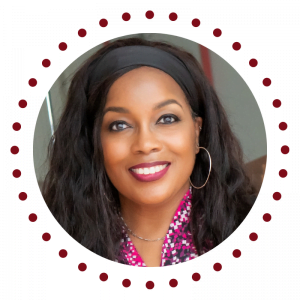
Want Karan to be Your Podcast Guest?
- Blended Workforces & the Gig Economy
- Critical Execution Tactics of High-performing Leaders
- Entrepreneurism & Leading Your Business

Want to be a Podcast Sponsor?
All sponsorships come with a featured spot on show notes pages.
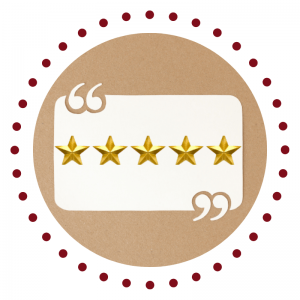
Like the Show? Please Leave a Review
If you like the show, it would mean the world to her if you left a quick review.
Your word is golden, so a HUGE thank you in advance!

#KeepInTouch
via our podcast alerts
Subscribe now to discover why thousands of monthly listeners who are passionate about doing their best work prioritize time each week to listen to the Blended Workforces @Work podcast.
#AboutSDL
#WhereToFindUs
MAILING
4480-H South Cobb Drive
PMB 219
Smyrna, GA 30080
PHYSICAL
2121 NewMarket Parkway
Ste. 108
Marietta, GA 30067
#ContactOptions
Customer Service Email:
service@shockinglydifferent.com
Call or Text:
770-384-1103
#Office Hours
MON-FRI
8:30 AM – 6:30 PM
Weekends By Appointment

